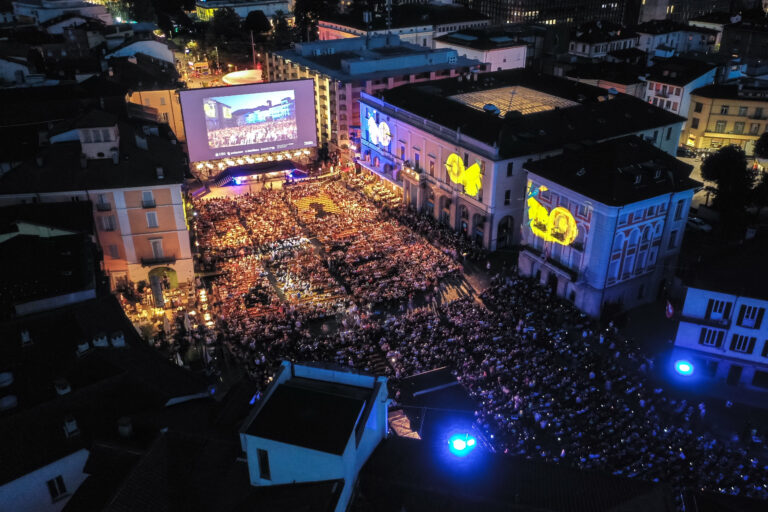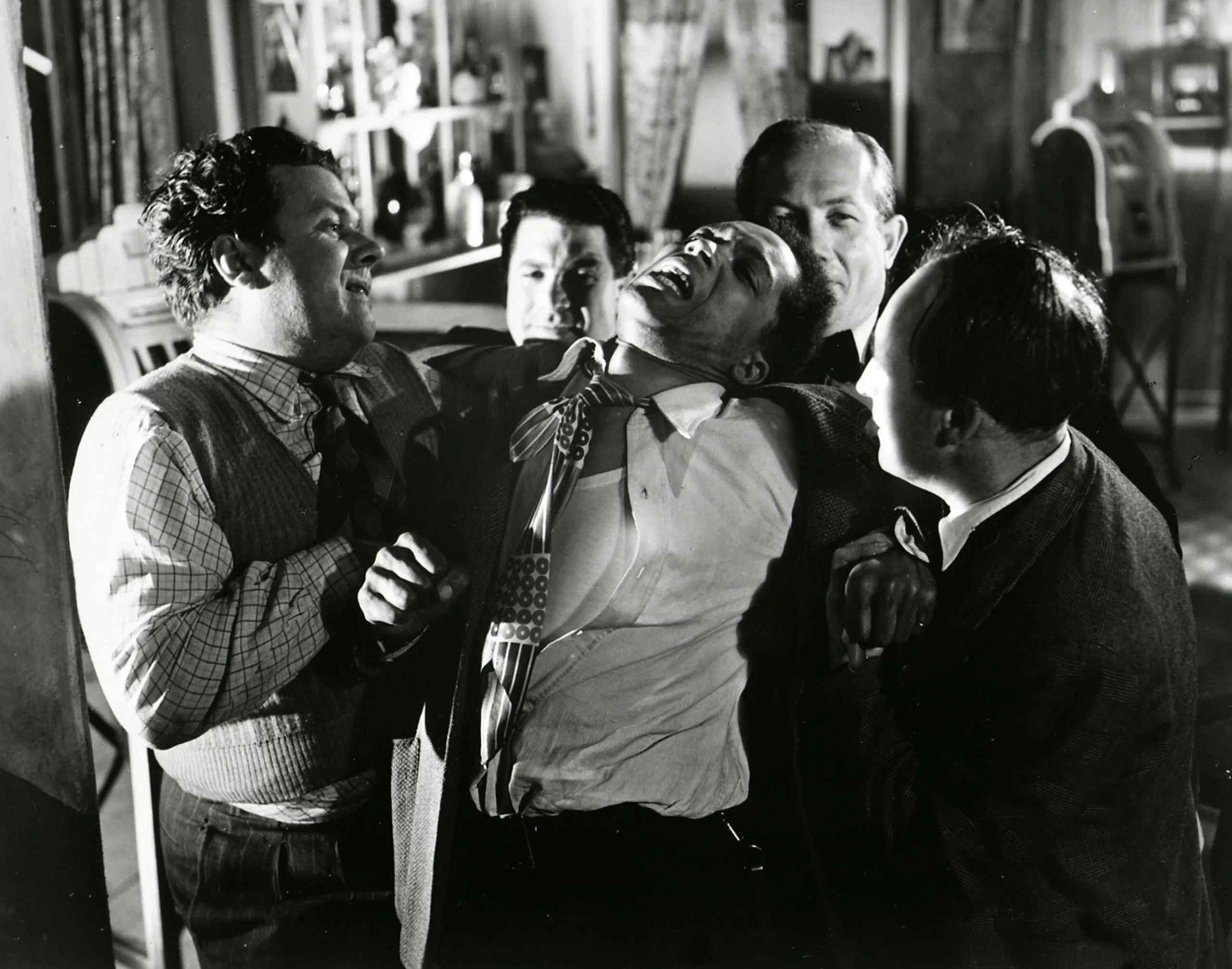
Though it’s only been a year since the 77th Locarno Film Festival, it felt like an eternity waiting for this one. This was my second year making the pilgrimage to the scenic seaside Swiss town that always promises a strong retrospective slate, an eclectic blend of world cinema, and the kind of ardent cinephile atmosphere that flourishes under the invigorating sun.
Before arriving in Locarno, however, I took a personal trip. I jumped into Edinburgh, Scotland, for a few days to see Oasis on their reunion tour (an event I’ve dreamed about for 18 years). As I walked around Edinburgh, which was in the midst of beginning its own film festival, I couldn’t help but peruse Twitter and Instagram, looking at the pictures of a festival that had already begun.
I arrived during the second half of Locarno, singing Oasis anthems and craving good cinema. Locarno did not disappoint.
The main competition offered an incredible array of modest films bearing profound emotion. I was elated to see Sho Miyake’s “Tabi to Hibi” or “Two Seasons, Two Strangers” take the festival’s top prize, the Golden Leopard. Miyake first arrived at Locarno with his debut feature “Playback” back in 2012. Since then, he has only grown as a filmmaker, gaining a foothold at the Berlinale, where his last two films—“Small, Slow But Steady” and “All The Long Nights”—world premiered. Despite his strong resume, he hasn’t fully broken out yet. The long-overdue recognition here changes that.
Along with Miyake’s award-winning film, the main competition also boasted Radu Jude’s biting AI satire “Dracula,” Ben Rivers’s otherworldly post-apocalyptic coming-of-age film “Mare’s Nest,” Naomi Kawase’s uneven Vicky Krieps starring medical romance “Yakushima’s Illusion,” and Georgian filmmaker Alexandre Koberidze’s lo-fi road trip “Dry Leaf.”
Locarno also delivered a surprising mix of long-awaited works and new stories. Duwayne Dunham’s David Lynch-produced dystopian Western, “Legend of the Happy Worker,” was filmed seven years ago before finally world premiering here. “Viet and Nam” filmmaker Minh Quý Trương and his co-director Nicolas Graux took home the Golden Leopard in the Filmmakers of the Present competition for their entrancing Vietnamese documentary “Hair, Paper, Water…” Canadian filmmaker Sophy Romvari also delivered a coming-of-age stunner in “Blue Heron.” The memory play, inspired by Romvari’s own life, was honored with the Swatch First Feature Award. It’ll next head to the Toronto International Film Festival for its North American premiere.
The festival also attracted a plethora of stars, some of whom received lifetime achievement awards for their illustrious careers. “The Holdovers” director Alexander Payne was named the Leopard of Honor. Martial arts legend Jackie Chan also took Locarno by storm, receiving a rapturous reception while accepting the Leopard Career Award. “Stranger than Fiction” star Emma Thompson accepted the Leopard Club Award. And after a career that includes turns in “Kill Bill” and “Charlie’s Angels,” Lucy Liu was also honored.

The hardest aspect of attending Locarno, however, is finding a way to balance new movies with old films. For example, in past years, the festival has celebrated the 100th anniversary of Columbia Pictures and Mexican cinema spanning the 1940s to the 1960s.
This year, they looked across the pond with Great Expectation: British Postwar Cinema 1945-1960. Of the 45 films that screened for the retrospective, I caught 14. Moreover, I wrote about the programme from two different perspectives. The first was an examination of how Basil Dearden’s “Pool of London” and Melvin Van Peebles’s “The Story of a Three-Day Pass” tackle interracial romance and overseas racism. I also accumulated a listicle of the 14 films I watched.
As I left Locarno, inspired again by the breadth of cinema I had encountered, I did so without knowing whether I would be able to return.
Let’s face it: Film criticism is presently caught in a desperate struggle. The Chicago Tribune eliminated its film critic position, letting go of Michael Phillips. Vanity Fair dissolved its criticism writing, too, releasing Richard Lawson. Ann Hornaday and Richard Roeper were bought out by The Washington Post and the Chicago Sun-Times, respectively. These aren’t outlets saying that covering film festivals is a luxury. They argue that writing about film is antiquated and unnecessary.
A few months ago, I wrote a piece about how the future of cinema is discovery. There, I made the point that “The biggest hurdle, however, is getting people to read about these films. Critics can publish reviews, but if they’re not being read, then the point is moot. In that sense, the necessity of discovery is also incumbent upon the reader.”
I can’t emphasize enough the role you play, too. There must be curiosity to learn about uncommon art and to think deeply about it. That work begins with the writer, but it continues with you. So, in a quickly changing landscape involving AI summarizing reviews on Google, several conniving corporations buying into ChatGPT as a viable option for reporting, and a general revulsion to intellectualism, local and national journalism, and the people outside our own phone screens, the only antidote is discovery and support. Without them, I fear how far we will devolve. Not just as readers of criticism but also as social creatures.
Criticism, like all good things, is about the discovery of the self, inspired by our interaction with an art form that reveals something about our world. It too is an “empathy machine.” Criticism can, in its own way, act as a conduit between the feelings of the filmmaker and the feelings of the viewer, which also includes the critic. If criticism is allowed to, through an informed knowledge of film technique and history, and as the expression of one human’s experience, it can help the viewer empathize with a story they never knew existed, a viewpoint they never once considered, or a party that’s never been heard.
I hope that we will be in a better place this time next year. I hope many of these outlets realize the grave mistake they’ve made in turning their backs on good, brilliant people whose primary care is to support an art form on behalf of the people who love it. I hope we will shake ourselves and our neighbors awake from a harmful slumber that’s cocooned us from the grim threat we face now to our ways of both consuming and nourishing our souls and our minds. I hope, this time next year, after many twists and turns, that I will be able to share with you stories about the many people I’ve met and the films I’ve loved too.
For six days at Locarno, I lived a dream. For the next 12 months, I will live in hope.
Source link

